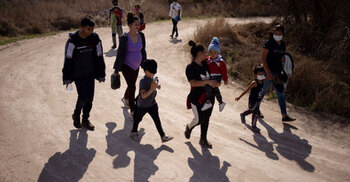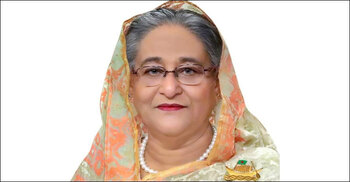Pope Francis meets powerful Shia cleric in Iraq

Pope Francis has held a symbolic meeting with one of the most powerful figures in Shia Islam on the second day of his landmark trip to Iraq.
The Pope's encounter with Grand Ayatollah Ali al-Sistani, the spiritual leader of millions of Shia Muslims, took place in the holy city of Najaf, reports BBC.
It is the Pope's first international trip since the start of the pandemic - and the first ever papal visit to Iraq.
Covid-19 and security fears have made this the pontiff's riskiest trip yet.
The 84-year-old leader of the Catholic Church earlier told reporters that he felt "duty bound" to make the "emblematic" journey, which will see him visit several sites over four days in Iraq.
No details were given of the Pope's talks with the 90-year-old leading Shia cleric but they are likely to have focused on inter-faith issues such as Iraq's Christian minority, who have been hit by waves of violence since the 2003 US-led invasion of Iraq.
The pontiff will later travel to the ancient city of Ur, where the Prophet Abraham - central to Islam, Christianity and Judaism - is believed to have been born.
About 10,000 Iraqi Security Forces personnel are being deployed to protect the Pope during his visit, while round-the-clock curfews are also being imposed to limit the spread of coronavirus.
Some Shia militant groups have reportedly opposed the visit, suggesting the tour amounts to Western interference in the country's affairs.
What has the Pope said so far?
Shortly after he was greeted at Baghdad airport by Iraq's Prime Minister Mustafa al-Kadhimi on Friday, the pontiff called for "an end to acts of violence and extremism, factions and intolerance".
"Iraq has suffered the disastrous effects of wars, the scourge of terrorism and sectarian conflicts," he said in a speech.
"The age-old presence of Christians in this land, and their contributions to the life of the nation, constitute a rich heritage that they wish to continue to place at the service of all," the Pope added.
He said that the country's dwindling Christian community should have a more prominent role as citizens with full rights, freedoms and responsibilities.
One of the world's oldest Christian communities has seen its numbers plummet over the last two decades from 1.4 million to about 250,000, less than 1% of the population.
Many have fled abroad to escape the violence that has plagued the country since the US-led invasion in 2003 that ousted Saddam Hussein.
Tens of thousands were also displaced when Islamic State (IS) militants overran northern Iraq in 2014, destroying their historic churches, seizing their property, and giving them the choice to pay a tax, convert, leave or face death.







